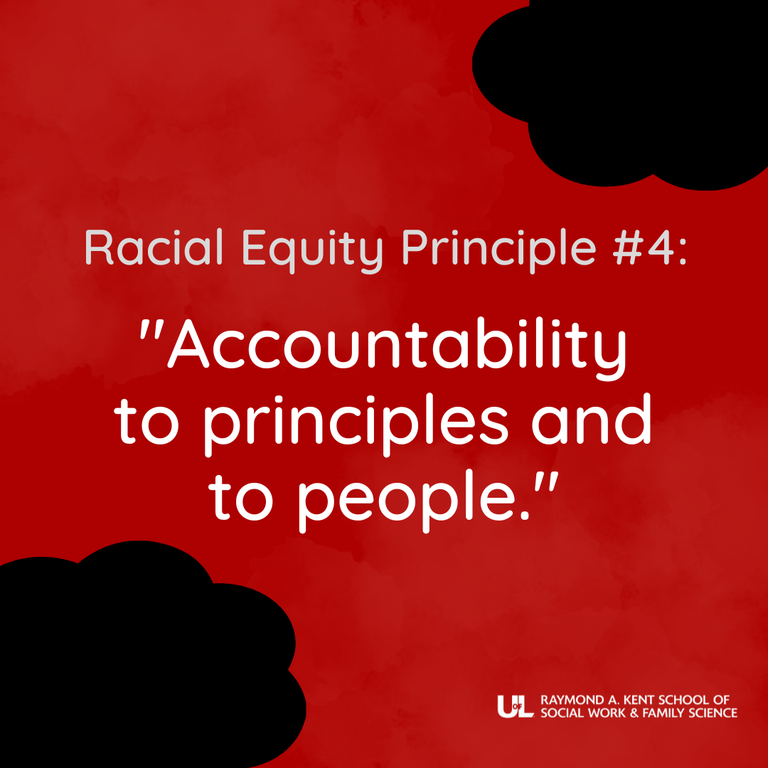DEI Racial Equity Principle of the Week: Principle #4

For the next several weeks we will be sharing 1 of 10 Racial Equity Principles created through the work of several grassroots organizations, most notably the Dismantling Racism Works collaborative, and curated by Tema Okun. Each Racial Equity Principle includes a definition and description of how applying that principle may look in our daily lives. We encourage you to reflect on the description of each principle, how much you can relate to or see value in it, and to what extent you may want to apply any of the approaches suggested in your daily lives, inside and outside of the Kent School.
Racial Equity Principle #4: Accountability to principles and to people
A grounding principle of every social justice movement is a commitment to the power of building relationships in the service of community. In working for racial justice, we are asked to disrupt the traditional models that assume formally educated white people are better equipped to lead and/or address problems, particularly in communities where they have few authentic relationships. Accountability is in essence a form of solidarity, one that acknowledges the deep conditioning of all of us into a racist construct that places white at the top while systematically devaluing BIPOC people and communities. In this culture, we are taught to hoard power, win at all costs, see “other” as threat, and live in increased anxiety about losing our share of the so-called pie. As a result, we are separated not just from each other but from ourselves. Accountability becomes a way to reconnect through the power of authentic relationship across these false yet powerful divides.
Accountability is also a form of discernment around how to live into shared values or principles. Accountability is another word for support; we hold each other accountable by supporting each other to live into our collective values to the best of our ability, knowing that we will inevitably stumble, make mistakes, live into our conditioning in ways that cause harm. We will also be brave and kind and loving and compassionate. Principles help us focus beyond our own socialized confusions. Social justice values or principles are collectively created, grounded in the generational wisdom of elders, what we have learned from history, our experience, our understanding of the Creator and/or environment, and our desires for liberation. Another way of saying this is that if we are just accountable to people, we can get into trouble when the people we’re accountable to are acting out of confusion; this is where our principles help keep us grounded. If we are accountable only to principles, we tend to lose sight of the people that we are in relationship with, so our relationships can help us understand the nuance and complexity of honoring our principles.
Retrieved from: whitesupremacyculture.info/racial-equity-principles.html
